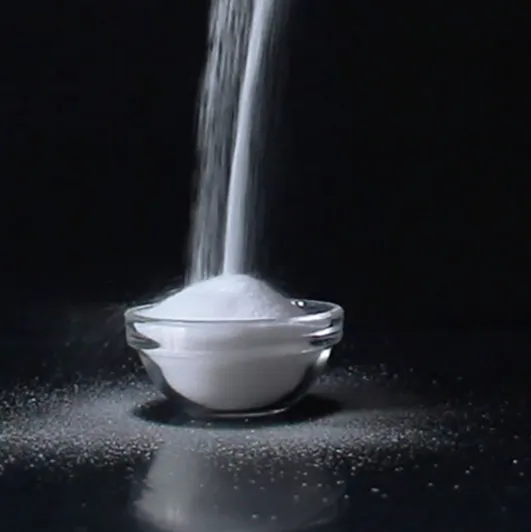Warning: Undefined array key "title" in /home/www/wwwroot/HTML/www.exportstart.com/wp-content/themes/1198/header.php on line 6
Warning: Undefined array key "file" in /home/www/wwwroot/HTML/www.exportstart.com/wp-content/themes/1198/header.php on line 7
Warning: Undefined array key "title" in /home/www/wwwroot/HTML/www.exportstart.com/wp-content/themes/1198/header.php on line 7
Warning: Undefined array key "title" in /home/www/wwwroot/HTML/www.exportstart.com/wp-content/themes/1198/header.php on line 7
- Afrikaans
- Albanian
- Amharic
- Arabic
- Armenian
- Azerbaijani
- Basque
- Belarusian
- Bengali
- Bosnian
- Bulgarian
- Catalan
- Cebuano
- China
- China (Taiwan)
- Corsican
- Croatian
- Czech
- Danish
- Dutch
- English
- Esperanto
- Estonian
- Finnish
- French
- Frisian
- Galician
- Georgian
- German
- Greek
- Gujarati
- Haitian Creole
- hausa
- hawaiian
- Hebrew
- Hindi
- Miao
- Hungarian
- Icelandic
- igbo
- Indonesian
- irish
- Italian
- Japanese
- Javanese
- Kannada
- kazakh
- Khmer
- Rwandese
- Korean
- Kurdish
- Kyrgyz
- Lao
- Latin
- Latvian
- Lithuanian
- Luxembourgish
- Macedonian
- Malgashi
- Malay
- Malayalam
- Maltese
- Maori
- Marathi
- Mongolian
- Myanmar
- Nepali
- Norwegian
- Norwegian
- Occitan
- Pashto
- Persian
- Polish
- Portuguese
- Punjabi
- Romanian
- Russian
- Samoan
- Scottish Gaelic
- Serbian
- Sesotho
- Shona
- Sindhi
- Sinhala
- Slovak
- Slovenian
- Somali
- Spanish
- Sundanese
- Swahili
- Swedish
- Tagalog
- Tajik
- Tamil
- Tatar
- Telugu
- Thai
- Turkish
- Turkmen
- Ukrainian
- Urdu
- Uighur
- Uzbek
- Vietnamese
- Welsh
- Bantu
- Yiddish
- Yoruba
- Zulu
aug . 16, 2024 18:11 Back to list
Understanding the Use of Propylene Glycol in Beverage Production and Safety Considerations
Propylene Glycol in Beverages A Comprehensive Overview
Propylene glycol (PG), a synthetic organic compound derived from petroleum, has become increasingly common in various industries, including food and beverage production. This colorless, odorless liquid is recognized for its versatility and efficacy as a solvent, humectant, and preservative. Within the beverage industry, propylene glycol serves specific functions that contribute to product quality and stability. In this article, we will explore the uses of propylene glycol in beverages, its safety profile, and the regulatory considerations surrounding its use.
Uses of Propylene Glycol in Beverages
Propylene glycol is primarily used in the formulation of beverages for several reasons. One of its primary roles is as a humectant, which helps retain moisture in products. This characteristic is particularly beneficial in beverages that contain flavors, vitamins, or other additives that might be sensitive to changes in humidity. By maintaining the moisture content, propylene glycol increases the shelf life and stability of these products, ensuring that they remain fresh for longer periods.
Additionally, propylene glycol acts as a solvent for flavoring agents, colors, and other components. In beverages, where the combination of various ingredients can lead to separation or degradation, PG helps to maintain a homogeneous mixture. This is especially important in ready-to-drink products, where consistent flavor and appearance are crucial for consumer satisfaction.
Moreover, propylene glycol is often found in some flavored alcoholic and non-alcoholic beverages, where it enhances the overall taste profile
. The compound can help to bind ingredients that may otherwise not mix well, allowing for a more enjoyable drinking experience.Safety Profile and Toxicology
The safety of propylene glycol has been evaluated by various health agencies, including the U.S. Food and Drug Administration (FDA). The FDA recognizes propylene glycol as Generally Recognized As Safe (GRAS) for use in food products, which includes beverages. This classification is based on extensive research and decades of safe usage in food and beverage applications.
propylene glycol in beverages

Despite its widespread acceptance, some consumers express concerns about the consumption of synthetic additives. It is important to note that propylene glycol is metabolized by the human body into lactic acid and other metabolites, which are naturally occurring compounds.
While PG is considered safe for consumption in moderate amounts, excessive intake could potentially lead to adverse effects, such as nausea or toxicity. Therefore, regulatory agencies often set limits on its concentration in food and beverages to mitigate any risks. Consumers should always be aware of ingredient labels, especially if they have specific dietary concerns or health conditions.
Regulatory Considerations
The use of propylene glycol in beverages is subject to strict regulations. In the United States, the FDA oversees the food and beverage industry and provides guidelines on acceptable additives and their concentrations. Similar regulatory bodies exist in other countries, ensuring that global beverage standards align with safety protocols.
Consumers may notice varying regulations on the use of propylene glycol depending on geographical locations, leading to different formulations in products marketed in international markets. Therefore, it is crucial for consumers to be informed about local guidelines and standards related to food additives.
Conclusion
Propylene glycol serves an essential role in the beverage industry, acting as a humectant, solvent, and stabilizer. Recognized as safe by regulatory bodies, it contributes to the overall quality and longevity of various products. While it remains widely accepted, consumers should remain vigilant and informed about the ingredients in their beverages. As the beverage industry continues to evolve, understanding the components used in production is crucial for making informed choices.
Latest news
-
Xanthan Gum Replacement and Powder Insights
NewsJun.06,2025
-
Exploring SLES 70 in Depth
NewsJun.06,2025
-
E1520 Propylene Glycol Uses and Consumption Patterns
NewsJun.06,2025
-
Diethanolamine Multifaceted Uses and Role in Shampoo Formulations
NewsJun.06,2025
-
Caprolactam to Nylon Chemistry and Industry Insights
NewsJun.06,2025
-
Adipic Acid Molecular Weight Significance and Supplier Impact
NewsJun.06,2025

